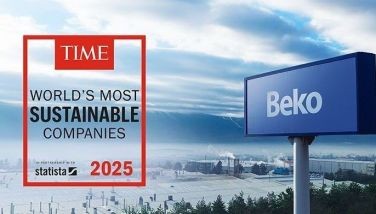Social media: The need for decency
CEBU, Philippines - In this digital age, the internet is everybody's playground. For the longest time, it has become an avenue for people to stage varied exhibitions and to do practically just about anything. In fact, it has been classified as "res communes," something that is common to all and is dominated exclusively by no one.
Ironically, many see the social media as having become a no-man's land where the only rule is that… there are no rules. For one, Facebook, which has been regarded as the "gold standard of social media," used to be just a polite platform where netizens upload photos, share videos, exchange private messages and catch up on the latest stories that are making the rounds in the community. But now it has become a free space to flap one's lips in a bull session and bash anyone who would dare to disagree.
Not even the celebrated Cybercrime Prevention Act of 2012 (Republic Act 10175) can deter a nagging neighbor from simultaneously cross-posting on her Facebook, Twitter, Google+, Tumblr, Snapchat and Instagram scurrilous statements, memes or images telling how her "kumare" successfully played the role of a concubine and a gold-digger at the same time. And interestingly, this nagging neighbor is just one type of those billions who can't help but electronically vent at a most amazing rate.
Online mudslinging and similar acts are getting even truer this time, since the aftermath from the 2016 election season is still on its peak, two days after. So far, while the election online drama has been quite amusing and interesting, it has obviously been so un-cordial for most of the time, sinking the online electoral campaigns into a new low. It has been very easy for people to call others names verbally pounding each other's bets to pieces. Expectedly, these "passionate" online fellows are those who are most likely to get in heated online feuds with those of other political affiliations.
At the outset, both national and local candidates and their campaign teams have clearly been aware of the impact of the digital and social media, seeming to uphold the reputation of the Philippines as the "Most Social Nation" in the world, according to the 2015 State of the Mobile Web Report, and tagged as the social media capital in the world by the 2014 Wave 7 Social Study. It surely is a game changer that can be an effective tool for benchmarking, monitoring campaigns, analyzing trends and pooling die-hard supporters and influencers together.
Yet, with all the election shams online, one thing is for sure - the social media has won the elections this year.
Thus, perhaps, this is the best time to relearn the unwritten rules for social media etiquette. Everyone ought to learn by heart that using aggressive language, sporting mean-spirited page and sites, making spiteful comments, hiding behind the cloak of anonymity so one can be unreservedly cruel, sharing around photos to debase others' reputation, or acting in a way for the sole purpose of just being rude create not just an unhealthy environment but also a place that does not make the best out of what the online world has to offer. The dos and don'ts for various social media platforms are rather endless but the basic mantra many learned during childhood stays the same - be respectful at all times.
The social networking sites may have taken over the Filipino culture. It even placed this year's electoral race into a one-of-a-kind paradigm where almost everyone has been an active participator, having their own stands and defending their own ideologies. The takeaway here - though this intensity shows a cluster of public participation and an exercise the freedom of speech - is that everything should not spill over the bounds of decency. (FREEMAN)
- Latest





















